ENTIRE CLASS:
NURS-6630N: Approaches to Treatment
NURS-6630N Week 7 Discussion/Assignment: Patient Medication Guide
This week, you will create a Medication Study Guide to share with your peers. This guide is intended to be a useful learning tool for you to use as you prepare for your clinical courses.
You will be assigned one of the following medications to create your guide:
| Chlorpromazine | Fluphenazine | Haloperidol | Loxapine | Perphenazine |
| Aripiprazole | Asenapine | Clozapine | Iloperidone | Olanzapine |
| Paliperidone | Quetiapine | Risperidone | Ziprasidone | Lurasidone |
| Brexpiprazole | Cariprazine | Lumateperone | Benztropine | Propranolol |
| Deutetrabenazine | Valbenazine |
Readings:
- Goldin, D. S. (2023). Fast facts for psychopharmacology for nurse practitioners. Springer Publishing.
- Chapter 7, “Antipsychotic Medications” (pp. 110-149)
- American Psychiatric Association (2020). The American Psychiatric Association practice guideline for the treatment of patients with schizophreniaLinks to an external site.. https://www.psychiatry.org/File%20Library/Psychiatrists/Practice/Clinical%20Practice%20Guidelines/APA-Draft-Schizophrenia-Treatment-Guideline.pdf
- Clozapine REMS (2023). What is the clozapine REMS?Links to an external site.https://www.newclozapinerems.com/home#Links to an external site.
- Utah State University. (n.d.). Creating study guidesLinks to an external site.. https://www.usu.edu/academic-support/test/creating_study_guides
- Drugs.comLinks to an external site.. (2023). https://www.drugs.com/
Note: Please use the following resource to check the most up-to-date box warnings, FDA approvals and indications, recommendations for follow-up evaluations, changes, etc.
THE ASSIGNMENT
Create a 2500 words (excluding visual elements) Medication Study Guide for your assigned psychotropic medication agents that may be utilized by you and colleagues for study. Your medication guide should be in the form of an outline and should include a title page, citations, and references. You should incorporate visual elements, such as concept maps, charts, diagrams, images, color coding, mnemonics, and/or flashcards. Be creative!
Note: Your Medication Study Guide should not be in the format of an APA paper.
Also Note: Your guide should be informed by the FDA-Approved and Evidenced-Based, Clinical Practice Guidelines Research.
Areas of importance that you should address—but are not limited to—include:
- Title page
- Description of the psychopharmacological medication agent, including brand and generic names, as well as appropriate FDA indication uses
- Any supporting, valid, and reliable research for non-FDA uses
- Drug classification
- The medication mechanism of action
- The medication pharmacokinetics
- The medication pharmacodynamics
- Appropriate dosing, administration route, and any considerations for dosing alterations
- Considerations of use and dosing in specific specialty populations, such as children, adolescents, elderly, pregnant people, those exhibiting suicidal behaviors, etc.
- Definition of half-life, why half-life is important, and the half-life for your assigned medication
- Side effects/adverse reactions potential
- Discuss clinical concerns with EPS and Tardive Dyskinesia
Note: Be sure to include screening tools that would be utilized. - Contraindications for use including significant drug to drug interactions
- Overdose considerations
- Diagnostics and labs monitoring comorbidities considerations
- Legal, ethical, and social considerations
- Pertinent patient education considerations
- References page
SOLUTION
Medication Guide Risperidone
Risperidone is a typical antipsychotic drug used to treat a range of mental health issues. It is also known as the brand Risperdal. This drug acts by adjusting the brain’s neurotransmitter activity, specifically dopamine and serotonin, which are important for mood, behavior, and thought processes. The FDA has approved Risperidone to treat schizophrenia in adults and adolescents 13–17 years old, as well as the short-term management of acute manic or mixed episodes linked to Bipolar, I Disorder in adults and children 10–17 years old. Risperidone is also licensed for the treatment of autism disorder-related irritability in children and teenagers (5–16 years old). It is helpful in the treatment of mood and psychotic disorders due to its effectiveness and adaptability.
Fostering Non-FDA Use Research
There have been various off-label uses of risperidone studied, with encouraging outcomes. Risperidone has been demonstrated to effectively reduce symptoms in the treatment of severe…………………………………………………………..purchase the entire solution at $10 only
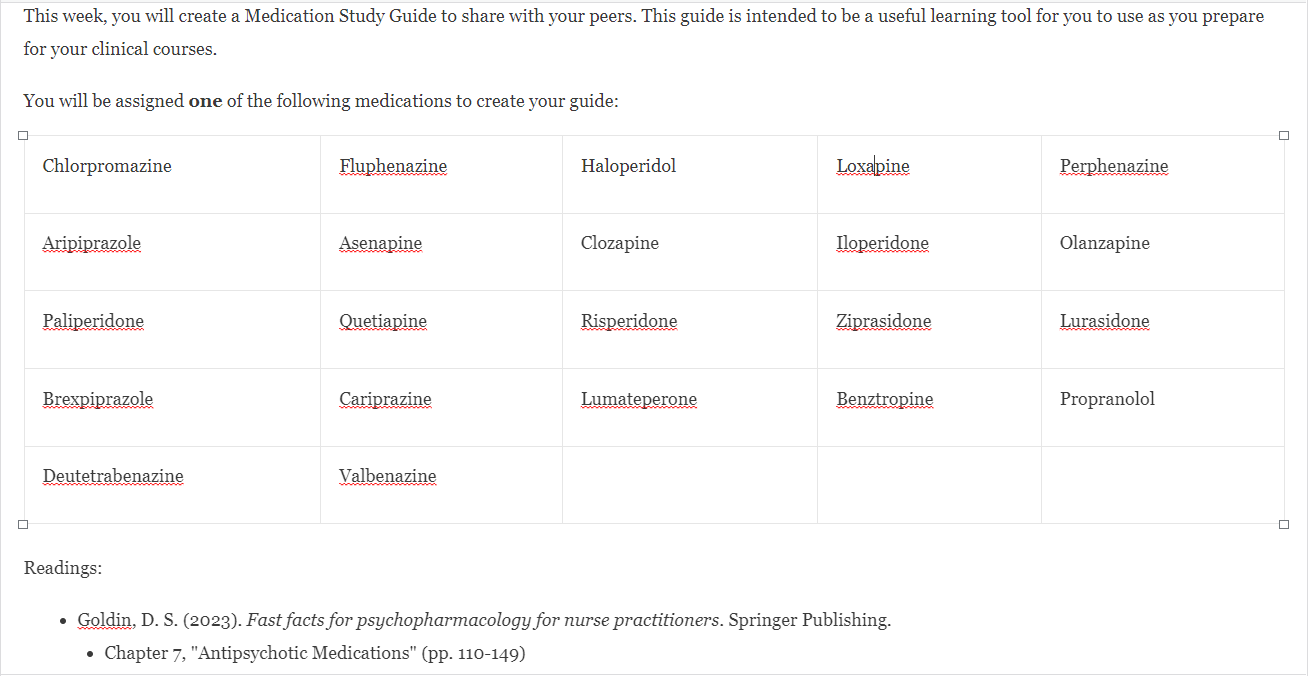
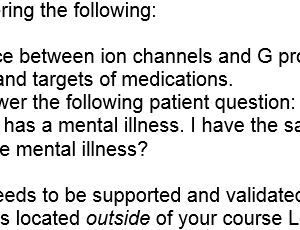
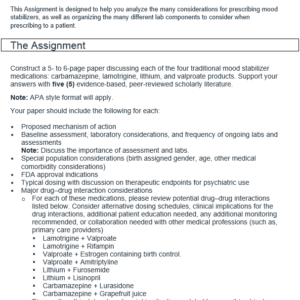
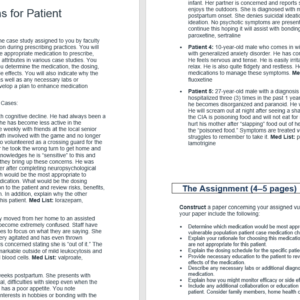
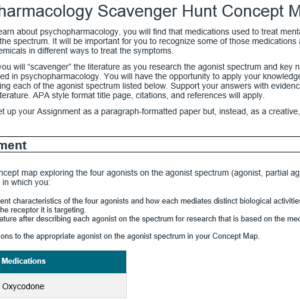
Reviews
There are no reviews yet.